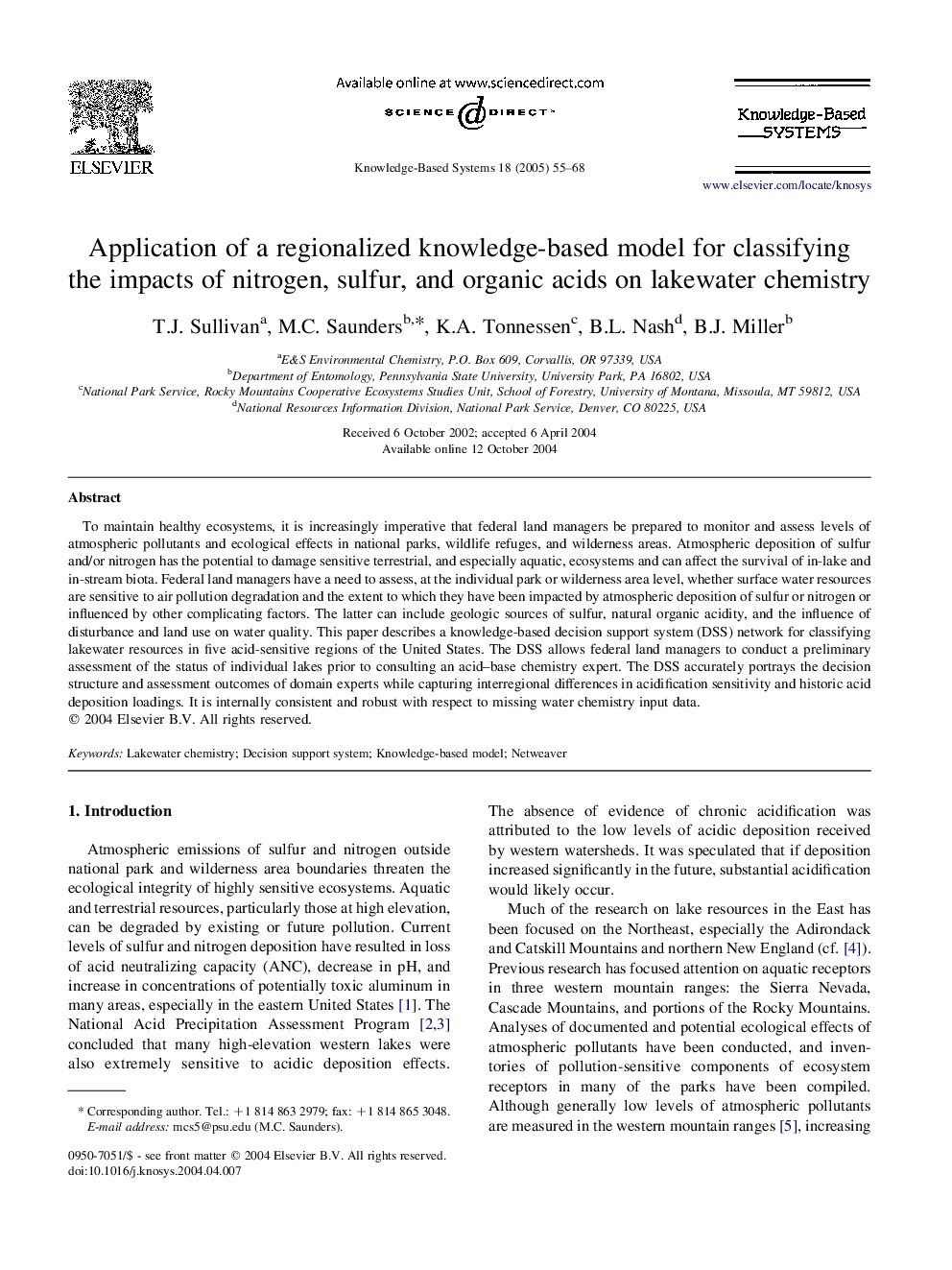| Article ID | Journal | Published Year | Pages | File Type |
|---|---|---|---|---|
| 10325849 | Knowledge-Based Systems | 2005 | 14 Pages |
Abstract
To maintain healthy ecosystems, it is increasingly imperative that federal land managers be prepared to monitor and assess levels of atmospheric pollutants and ecological effects in national parks, wildlife refuges, and wilderness areas. Atmospheric deposition of sulfur and/or nitrogen has the potential to damage sensitive terrestrial, and especially aquatic, ecosystems and can affect the survival of in-lake and in-stream biota. Federal land managers have a need to assess, at the individual park or wilderness area level, whether surface water resources are sensitive to air pollution degradation and the extent to which they have been impacted by atmospheric deposition of sulfur or nitrogen or influenced by other complicating factors. The latter can include geologic sources of sulfur, natural organic acidity, and the influence of disturbance and land use on water quality. This paper describes a knowledge-based decision support system (DSS) network for classifying lakewater resources in five acid-sensitive regions of the United States. The DSS allows federal land managers to conduct a preliminary assessment of the status of individual lakes prior to consulting an acid-base chemistry expert. The DSS accurately portrays the decision structure and assessment outcomes of domain experts while capturing interregional differences in acidification sensitivity and historic acid deposition loadings. It is internally consistent and robust with respect to missing water chemistry input data.
Related Topics
Physical Sciences and Engineering
Computer Science
Artificial Intelligence
Authors
T.J. Sullivan, M.C. Saunders, K.A. Tonnessen, B.L. Nash, B.J. Miller,
